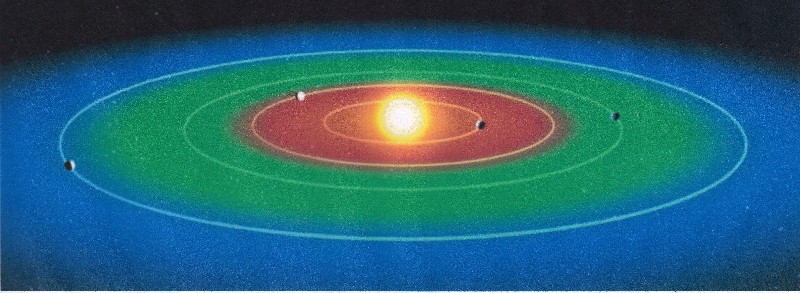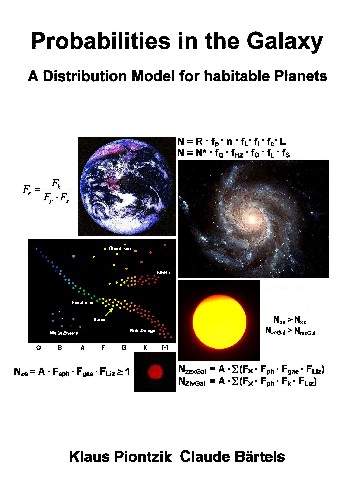 The habitable zone[9] is the distance range in which a planet must be located from its central star so that water can occur permanently in liquid form, as a prerequisite for life. The exact position of a habitable zone in a solar system depends on the star type, i.e. on the radiation and the temperature of the star. The habitable zone can, simplified, be calculated from the luminosity of a star. The average radius of this zone of any star can be calculated using the following equation:
d
is the average radius of the habitable zone in AU Fh = 0.016.58 = 10:603 Related to all star systems A in our galaxy, the number Nh of solar-like star systems with habitable planets results to:
|

|
176 sides, of them 64 in Color 76 pictures 11 tables Production and publishing: Books on Demand GmbH, Norderstedt ISBN 9-783-7528-5524-1 Price: 22 Euro |
|